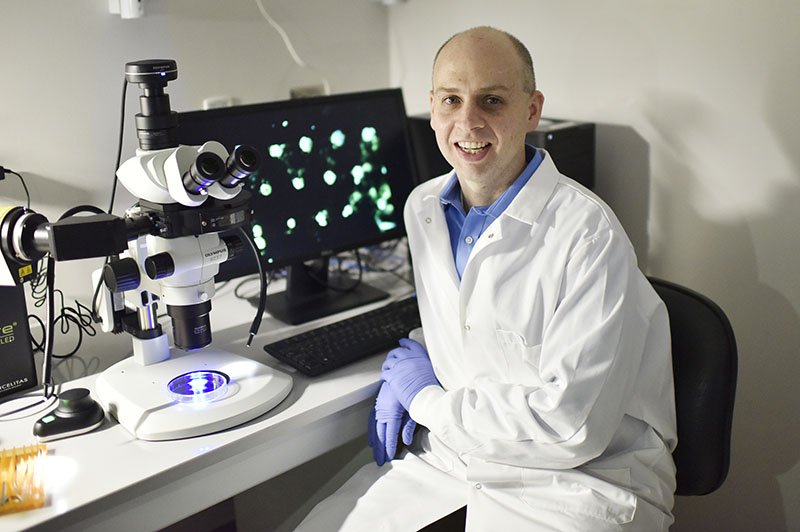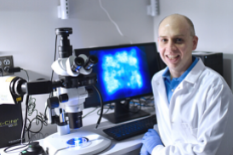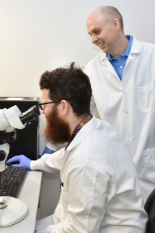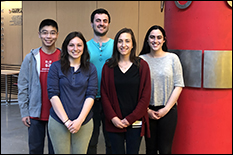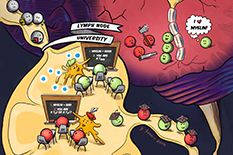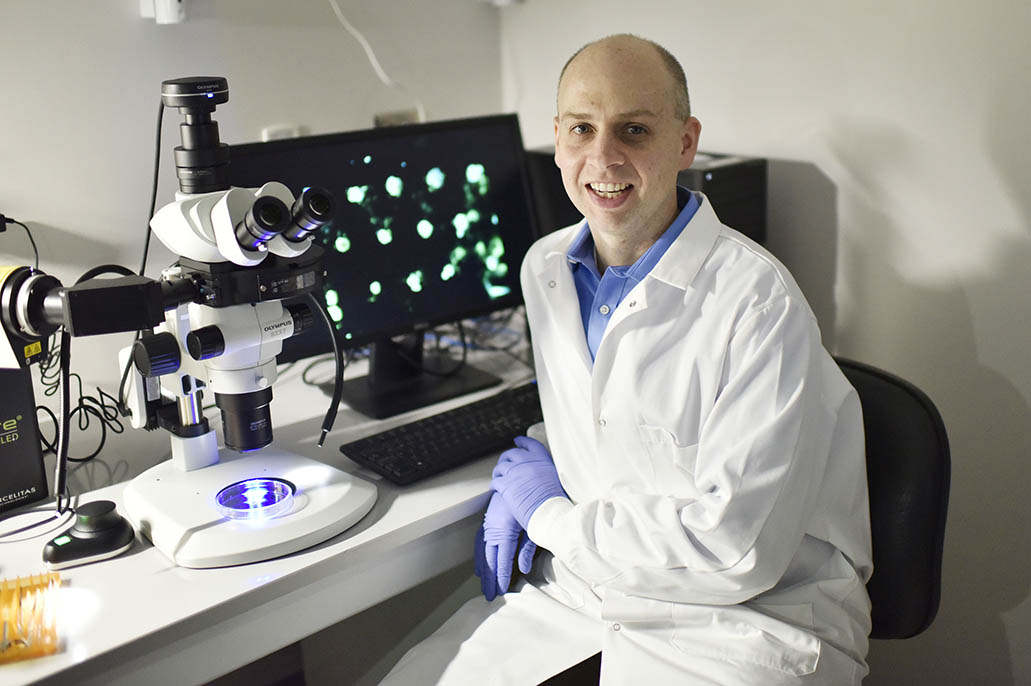News Story
Jewell Lab Makes Strides in Multiple Sclerosis Research
Fischell Department of Bioengineering (BioE) researchers are investigating a strategy that may help “turn off” the harmful immune attack that occurs during autoimmune diseases such as multiple sclerosis (MS), while leaving healthy functions of the immune system intact.
BioE Assistant Professor Christopher Jewell and members of the Jewell Research Lab are working with specially designed polymer particles they hope will reprogram how the immune system responds to self-cells in the central nervous system (CNS) during MS.
In MS, the immune system incorrectly recognizes components of the CNS, causing inflammation and destruction of myelin, the fatty substance that surrounds and protects nerve fibers. When this happens, nerve fibers and cells are damaged, leading to loss of motor function and other complications.
Current therapies for MS broadly decrease the activity of the immune system, but at a cost as it leaves MS patients vulnerable to infection. In searching for a way to decrease the harmful aspects of the immune system without eliminating the immune system’s helpful functions, Jewell and his team are working to re-train the immune system not to attack myelin components by generating specialized regulatory immune cells. The team is using degradable polymer particles incorporating regulatory signals to promote these cell populations.
To test this strategy, the group is harnessing two models of MS: one mimicking aspects of relapsing-remitting MS – which most patients initially present with, and a second model that mimics aspects of progressive disease, the stage with particularly limited treatment options. The studies will track the impacts on disease course, immune activity, tissue damage, and safety. They will also determine how specific the response is to see whether the ability to fight off other infections is retained.
Project collaborator Dr. Jonathan Bromberg, Chief of the Transplantation Division at the University of Maryland Medical School, says “The work combines several approaches in a novel way and has revealed unique and surprising changes in the function of lymph nodes and other tissues involved in immunological tolerance”
To support this exciting work, the National Multiple Sclerosis Society has awarded the group a three-year, $599,000 research grant.
Learn more about the Jewell lab and their work at jewell.umd.edu
Published November 17, 2015
